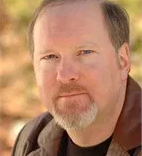Writing Productivity Tip #8—CREATE THE BEST WRITING ENVIRONMENT FOR YOURSELF
A series of eleven tips to help you get more time for writing, and to produce more writing when you do have time.
So, you’ve developed a writing routine, set up an office or at least a place where you use your laptop. It’s the way you’re accustomed to writing. But habit doesn’t necessarily make your setup the best. Have you ever stepped back with an objective eye to consider whether it works for you?
Is your “office” (whether it’s a spare bedroom, a corner of the kitchen table, or an old desk in the hall) conducive to productivity? Don’t just accept your environment as it is. Consider other possible rooms, desks, tables in the house. Try to create a “haven” for yourself, a place you can call a writing office, so that when you’re working there, you—and everyone else—regard it as your real workplace.
Look at where you have your computer or laptop set up. Is it on a TV tray in the middle of the living room with chaos and clutter all around? Probably not the best spot. A corner of the kitchen table with any old chair pulled up? A place where it’s easy for friends and family to chat with you? Is the television on and distracting you?
Now, look at your writing surface and your chair. See that they’re adjusted at the proper height: your bent arms should form a loose “L” to reach the keyboard. Most regular chairs are much too low for a typical table surface. If you hunch over or have to reach up for the keyboard or mouse, you could end up with sore arms, wrists, shoulders, and that can lead to serious repetitive-stress injuries such as pinched nerves, tendonitis, carpal tunnel syndrome, thoracic outlet syndrome, or cubital tunnel syndrome, to name a few. (I know from experience—my wife has had four arm surgeries to correct damage caused by an improper office setup from when she worked a full-time office job.) Sit on a pillow if you have to, or install a keyboard shelf.
Next, consider your personal habits and schedules. These will be different for each writer. Some people write best at home in familiar surroundings, while others find the home environment filled with distractions and numerous little household tasks. Some find themselves stimulated to write in a coffee shop with constant comings and goings and background chatter, while others prefer to get away from distractions by renting a separate room to be used specifically as an outside office. I happen to be most productive when writing or editing with loud music playing; my wife works best in total silence (which means we have our offices on opposite ends of the house).
(A side note: For the past year I’ve used a set of noise-cancelling headphones while I travel. They are remarkably effective at shutting out the background hubbub of airports, train stations, and coffee shops—which lets me concentrate completely, even amidst the chaos.)
What time of day is your peak imagination and energy? I’m a morning person, and I get the most work done first thing in the day with fresh coffee running through my bloodstream. Rebecca is a lot slower to get moving and doesn’t do much creative work until later in the day, but then she stays up well beyond the time when my sleepy brain is shutting down. If you’re a night person, try to arrange your writing time for late at night; if you’re a morning person, get up a little earlier to do your creative work.
Just because you’re used to writing in a certain place at a certain time, doesn’t mean that’s the only way you can be productive. As an experiment, try writing under different circumstances, at various times, and in a variety of places, then determine the best environment for you. Which collection of variables allows you to produce the most pages? You may be surprised. Then, once you’ve figured out how and where you can be most productive, arrange your schedule and your office environment to accommodate that.
New 2011 Calendar featuring stories and photos by KJA and T. Duren Jones. Limited quantity available. Order from www.anderzoneshop.com
This blog series is part of a lecture I’ll be presenting at the Superstars Writing Seminar in January 13–15 in Salt Lake City, a three-day intensive workshop focused on business and careers in writing. Other instructors include Brandon Sanderson, Sherrilyn Kenyon, David Farland, Rebecca Moesta, and Eric Flint. We hope to see you there.




You must be logged in to post a comment.